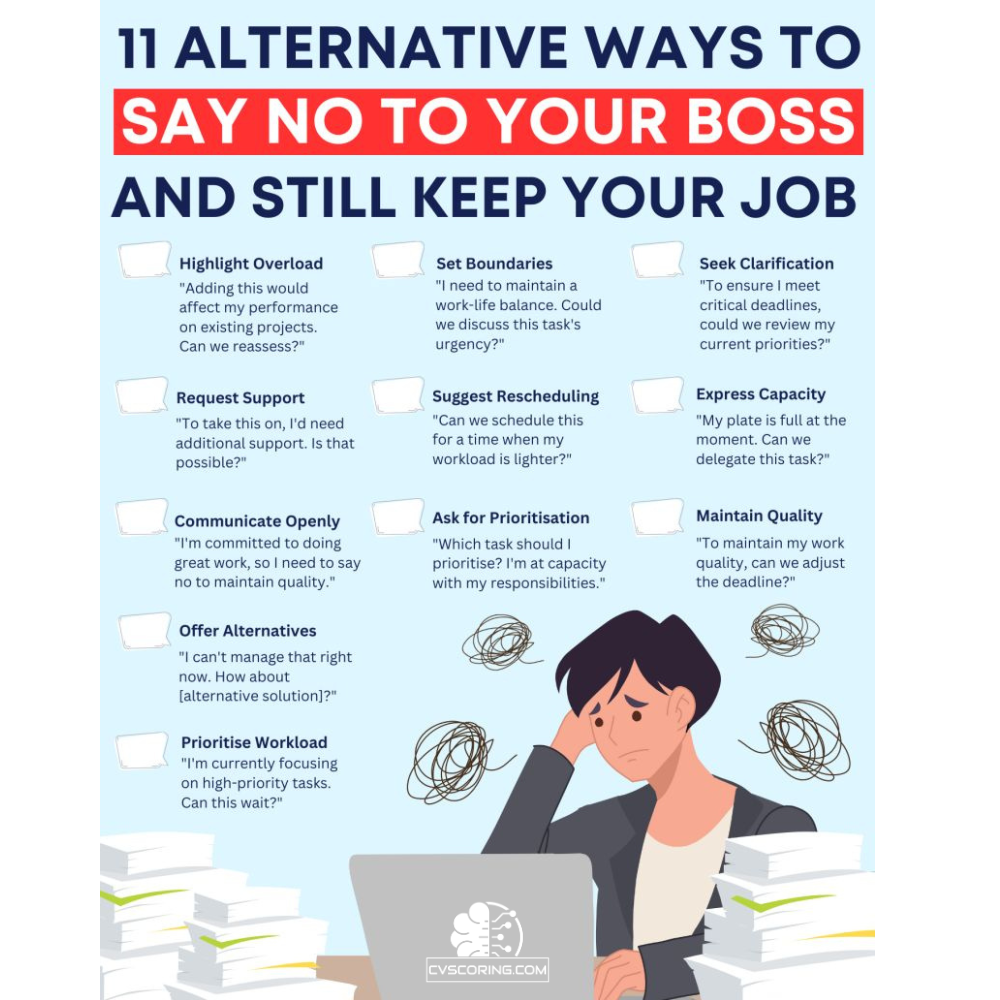
11 different ways to say no.
It’s easy to say yes.
And a lot, lot harder to say no.
Knowing what to say is the difficult part with this.
You often find it hard to say no to your boss for several reasons, rooted in psychological, social, and professional factors!
These can include:
⛔ Fear of Repercussions
You might fear that saying no could lead to negative consequences such as reduced opportunities for promotion, negative performance reviews, or even job loss.
⛔ Desire to Please
You may have a natural inclination to please authority figures and be seen as a cooperative and supportive team member.
⛔ Power Dynamics
The inherent power imbalance between you and your boss can make it difficult to assert yourself. You might feel that your opinions or needs are less important.
⛔ Career Ambitions
You often want to demonstrate your dedication and work ethic, hoping it will lead to career advancement. Saying no might be perceived as a lack of commitment.
⛔ Work Culture
In some workplaces, there is a strong culture of compliance and teamwork where saying no is frowned upon. You might feel pressured to conform to this culture.
⛔ Avoiding Conflict
You might be naturally conflict-averse and prefer to avoid potential disagreements or confrontations, especially with someone in a position of authority.
⛔ Lack of Assertiveness Skills
You might not have developed the skills to assertively communicate your boundaries or workload limits.
⛔ Unclear Boundaries
When job roles and responsibilities are not clearly defined, you might find it difficult to gauge when it is appropriate to say no.
⛔ Loyalty and Responsibility
If you feel a strong sense of loyalty to your company or team, you may find it difficult to decline additional tasks, even if you are already overwhelmed.
⛔ Perceived Expectations
You might assume that your boss expects you to always be available and willing to take on extra work, even if this expectation hasn't been explicitly stated.